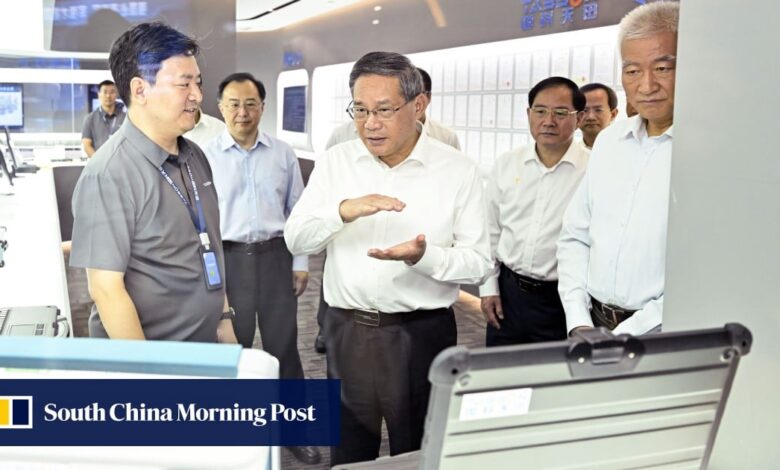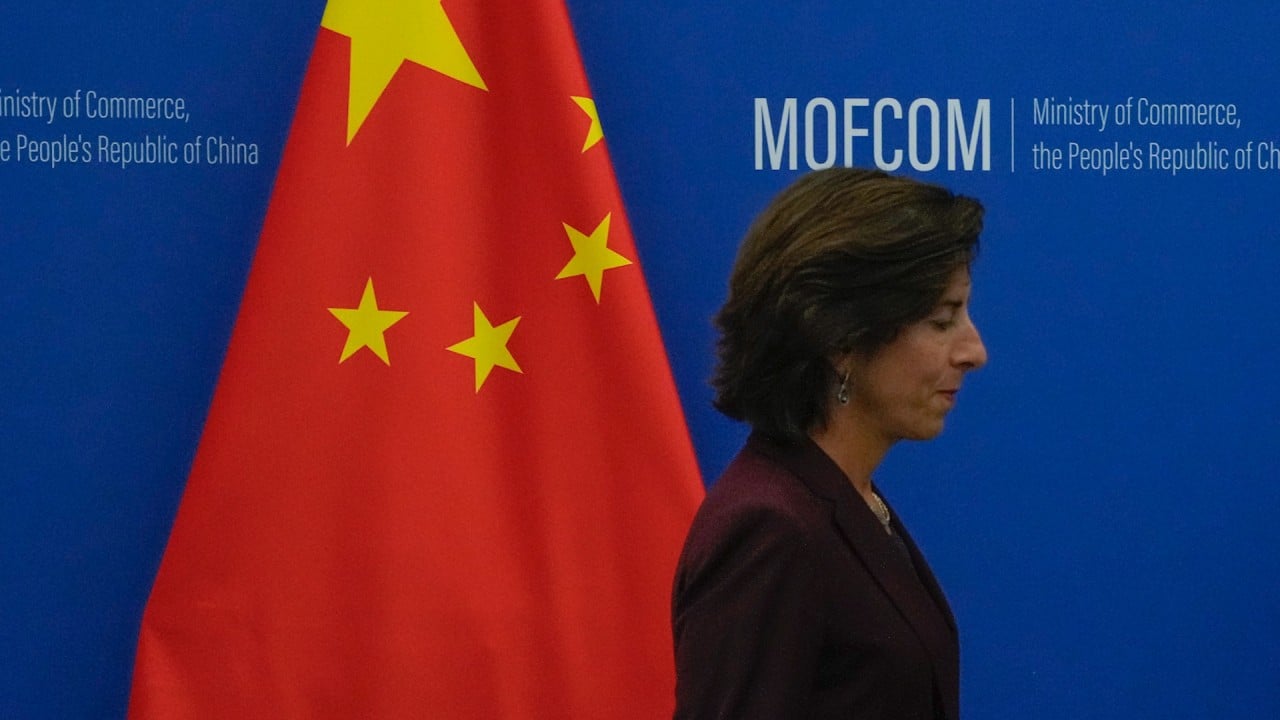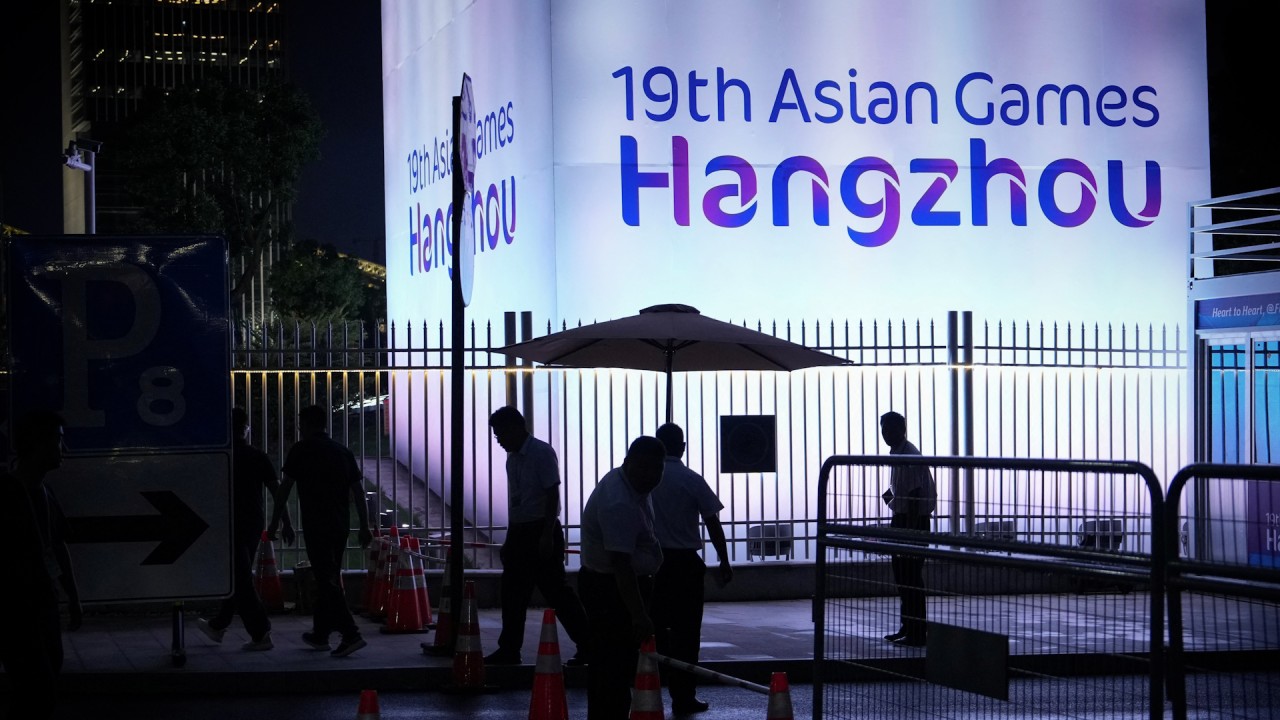Chinese Premier Li Qiang pushes hi-tech firms to do more to boost Beijing’s self-reliance in face of US restrictions

[ad_1]
Li made the remarks on Thursday as he visited three of China’s leading technology powerhouses, including Beijing U-Precision Technology, an emerging builder of chip-making machines with years of experience in nano-scale ultra-precision measurement and control technology.
“Our country’s economy is at a critical juncture in high-quality development, and we must further enhance our confidence in development and maintain our focus on transformation and upgrading,” Li was quoted as saying by state media agency Xinhua.
Li Qiang’s inspection came at a time when all eyes are on China, which is in the throes of an economic slowdown.
Even though Li views technological innovation as a key foundation for high quality economic development, there can hardly be immediate progress while China still struggles to counter technological clampdowns from the West.
Li reaffirmed Beijing’s support for the companies to enhance innovation and explore subdivided fields, adding that it was necessary for the industry to “further strengthen confidence and maintain determination”, according to Xinhua.
“The rapid development of specialised, refined, distinct and novel enterprises fully reflects the strong resilience and vitality of our country’s economy. For [these] enterprises, innovation is the soul,” Li said.
Hi-tech firms are referred to as “specialised, refined, distinct and novel enterprises” in China – a term that has come into frequent use as competition with the US intensifies.
According to Xinhua, Li said the industry should transform into one that concentrates on high-end, intelligent and green technology, to climb to the top of the industrial chain, innovation chain and value chain.
3 barriers to China’s hi-tech self-sufficiency quest – and 1 potential pay-off
3 barriers to China’s hi-tech self-sufficiency quest – and 1 potential pay-off
China has set an annual economic growth target of ‘around 5 per cent’, but the country’s economic recovery has been subdued and, with limited time left, a more timely impact is needed to boost the economy in the short term, as well as to restore confidence among investors and consumers both at home and abroad.
The economic data in August showed faint hope, with small lifts in manufacturing and consumption, which are improvements from depressed levels.
But the property sector, which has been plagued by debt stress and weak confidence among homebuyers, continued to deteriorate, falling by 8.8 per cent in the first eight months of the year, compared with 8.5 per cent over the first seven months.
Private investment also continued to worsen, from a fall of 0.5 per cent in the first seven months to a 0.7 per cent decline from January to August year on year, thanks to subdued sentiment.
In the latest effort to appease private firms, a Chinese private economy regulator rolled out a 22-point package on Friday intended to boost confidence among companies.
The package of measures will focus on improving the business environment, ramping up policy support, strengthening legal safeguards and improving engagement as well as other goals, the State Administration for Market Regulation said.
Meet the shadow agents searching the world in China’s talent war
Meet the shadow agents searching the world in China’s talent war
In addition, discussion has been on the rise as China refrains from unleashing mass stimulus measures despite an ailing housing market, falling investment and exports, and an overall absence of a robust rebound.
Sheng Laiyun, deputy director of the National Bureau of Statistics of China said, “China is at a pivotal time of economic recovery and industrial upgrade” and it must recognise and address the issues which could be overcome as the economy continues to stabilise and grow, according to an article published on Economic Daily, a party outlet.
[ad_2]
Source link







